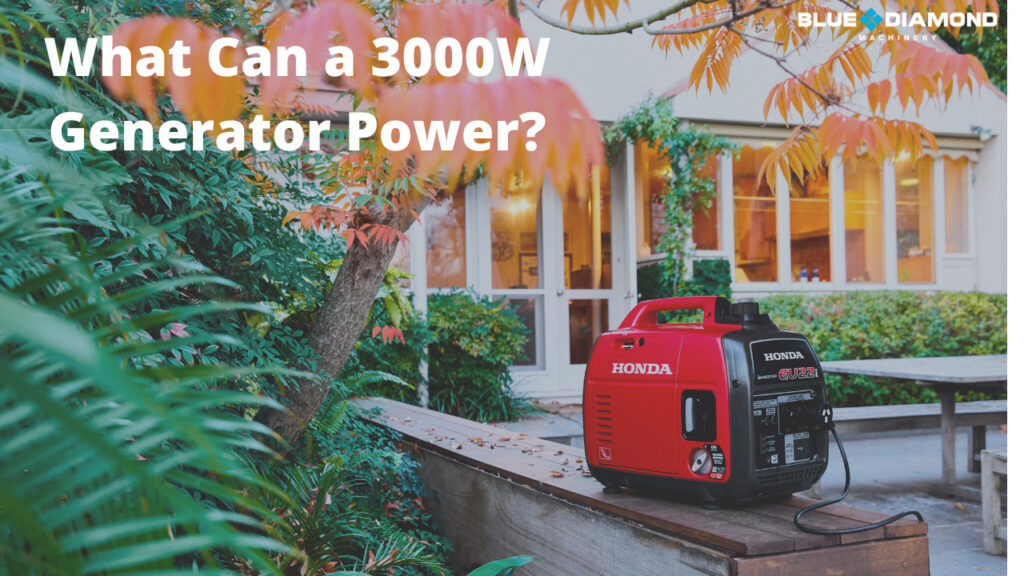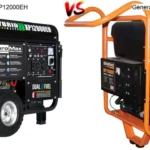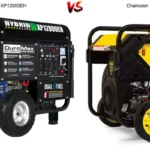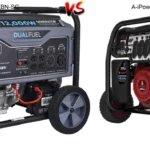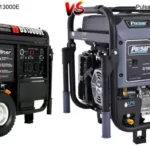When it comes to portable power generation, a 3000 watt generator is a great option for powering a variety of appliances and electronics. This comprehensive guide and review will provide an overview of what a 3000 watt generator can power, as well as some tips and tricks for making the most of it.
Types of Generators
Portable Generators
A portable generator is a great option for those who need a generator to provide temporary power in a variety of locations. Portable generators are typically powered by gasoline, although some may use propane, diesel, or even natural gas as a fuel source. Portable generators usually range from 1,000 to 10,000 watts and are typically used for camping, tailgating, RVing, and other outdoor activities. A 3000 watt generator is generally considered to be on the lower end of the power range for a portable generator and is often used to power small appliances, such as a TV or laptop, or to provide emergency backup power for a few lights and a refrigerator.
Standby Generators
Standby generators are permanently installed outside the home and are typically powered by natural gas or propane. These generators are typically much more powerful than portable generators and are used to provide emergency backup power to a home in the event of a power outage. A 3000 watt generator is small in comparison to many of the larger standby generators, which can range from 8,000 to 20,000 watts or more. Standby generators of this size are typically used to provide power to a few lights, sump pumps, and other necessary appliances in the event of a power outage.
Inverter Generators
Inverter generators are relatively new to the market and are becoming increasingly popular with those looking for a quiet, lightweight generator that is capable of powering sensitive electronics. Inverter generators are typically powered by gasoline and range from 1,000 to 10,000 watts. A 3000 watt inverter generator is great for powering small electronics and appliances, such as a laptop, television, or refrigerator. Inverter generators are also quieter than traditional generators and are ideal for camping, tailgating, or RVing.
What Can a 3000 Watt Generator Run?
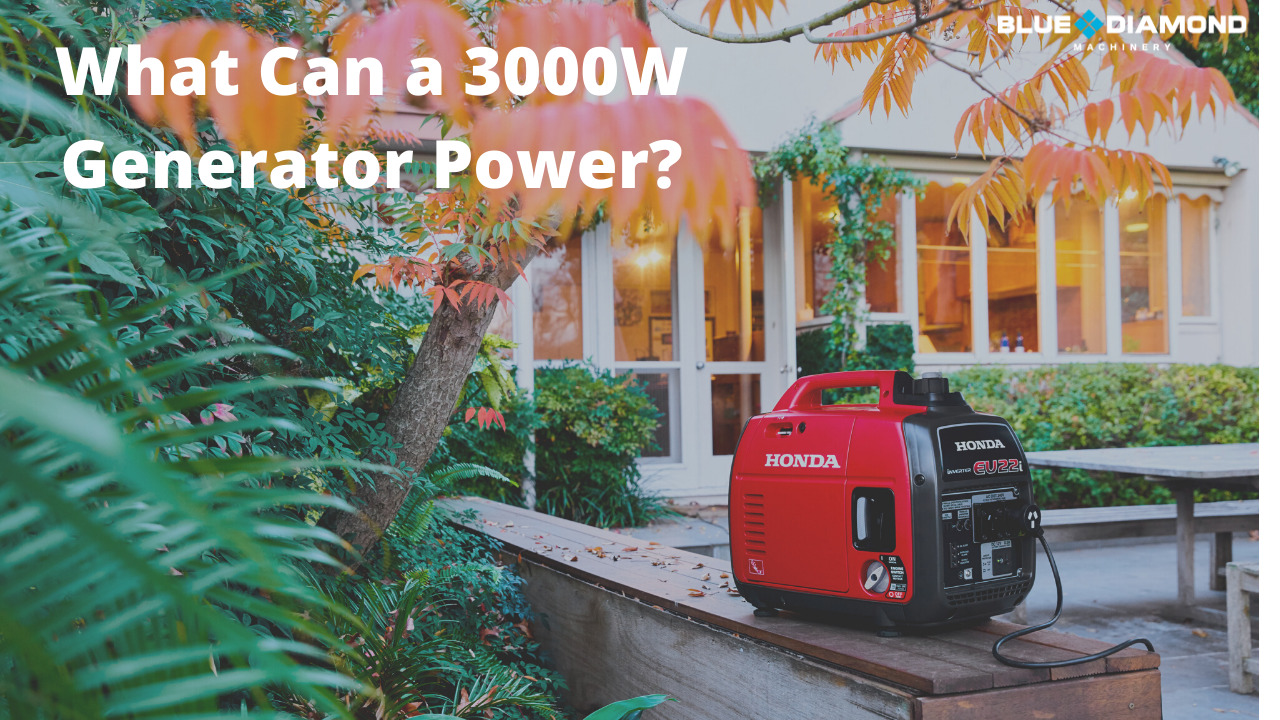
1. Home Necessities
A 3000 watt generator is ideal for powering home necessities such as refrigerators, freezers, and air conditioners. It can also provide enough wattage to power a few lights and small electronics such as a television, laptop, and cell phone charger.
2. Outdoor Power Tools
A 3000 watt generator can also provide enough power to run various power tools such as a circular saw, drill, or impact wrench. This makes it a great choice for those who need to work on outdoor projects such as building a deck or fence.
3. Outdoor Recreational Equipment
A 3000 watt generator can also provide enough power to operate outdoor recreational equipment such as a camping trailer or RV. This makes it ideal for camping trips or tailgating parties. It can also power a small boat motor or a small motor home.
Generator Performance Considerations
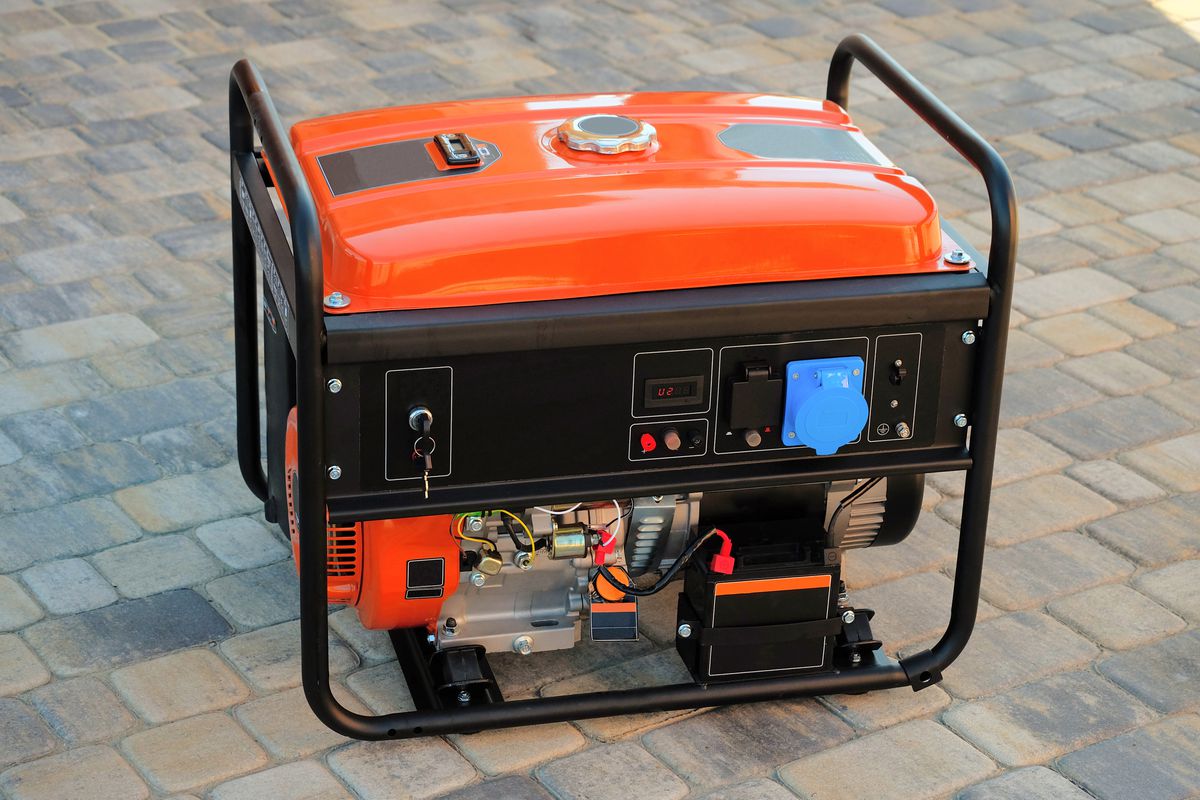
When considering the purchase of a 3000 watt generator, it is important to consider the performance of the generator. Generators can vary in their efficiency, power output, and noise levels. Below is a table that outlines the various performance considerations for a 3000 watt generator.
| Performance Factor | Description |
|---|---|
| Efficiency | The efficiency of a generator is measured by the ratio of output power to input power. Higher efficiency means less fuel consumption. |
| Power Output | The power output of a generator is measured in watts, and indicates how much electricity the generator can produce. A 3000 watt generator will provide enough power for many household appliances. |
| Noise Levels | Generators can produce a significant amount of noise, so it is important to consider the noise levels of the generator. Higher noise levels can be disruptive and cause discomfort. |
By considering these performance factors, you can make an informed decision on which 3000 watt generator is right for you.
1 Starting Watts
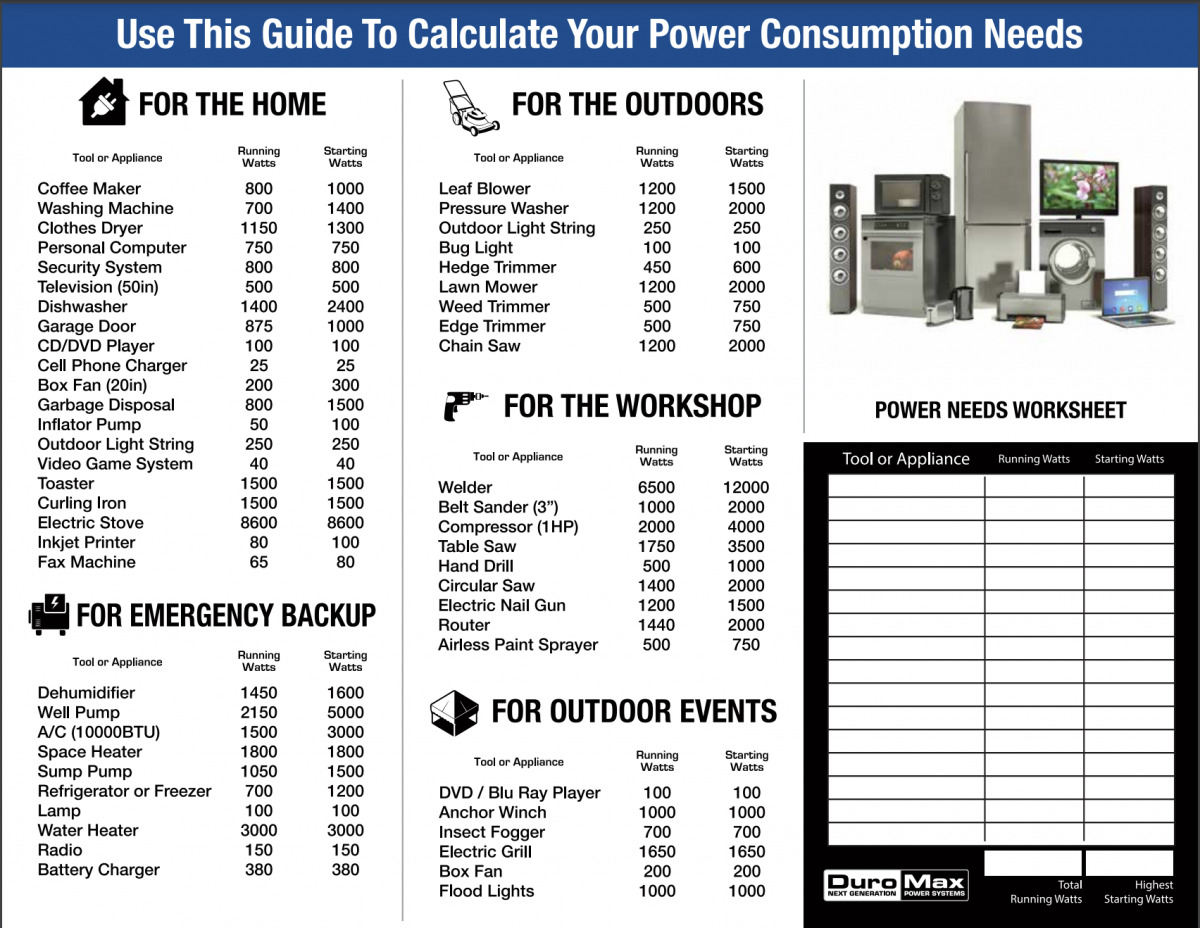
A 3000 watt generator will typically have a starting wattage of 1,500 watts. Starting watts are the extra power needed to start larger motors and power tools. This means that a 3000 watt generator will be able to start motors and power tools that draw up to 1,500 watts of power. It is important to note that the generator will not be able to run all of the tools or motors that draw 1,500 watts at the same time. The generator will be able to provide 1,500 watts of starting power, but it will not be able to provide the same amount of power continuously.
2 Running Watts
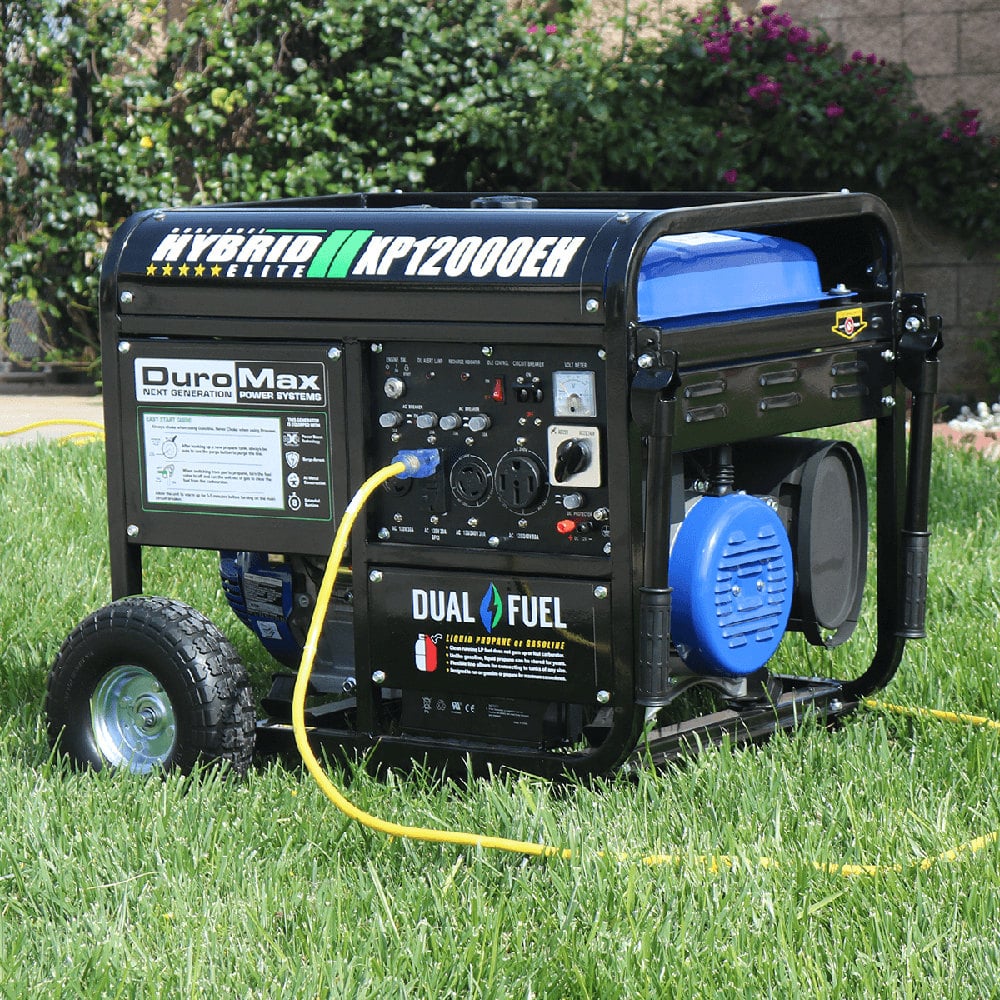
A 3000 watt generator has the capacity to provide 2 running watts of power. This means that the generator can provide up to 2 kilowatts of electricity for a sustained period of time. This is enough to power most household appliances, including refrigerators, air conditioners, and other larger appliances. However, the generator may not be able to power all of these appliances at the same time. It is important to check the wattage requirements of the individual appliances before attempting to use the generator to power them.
3 Surge Watts
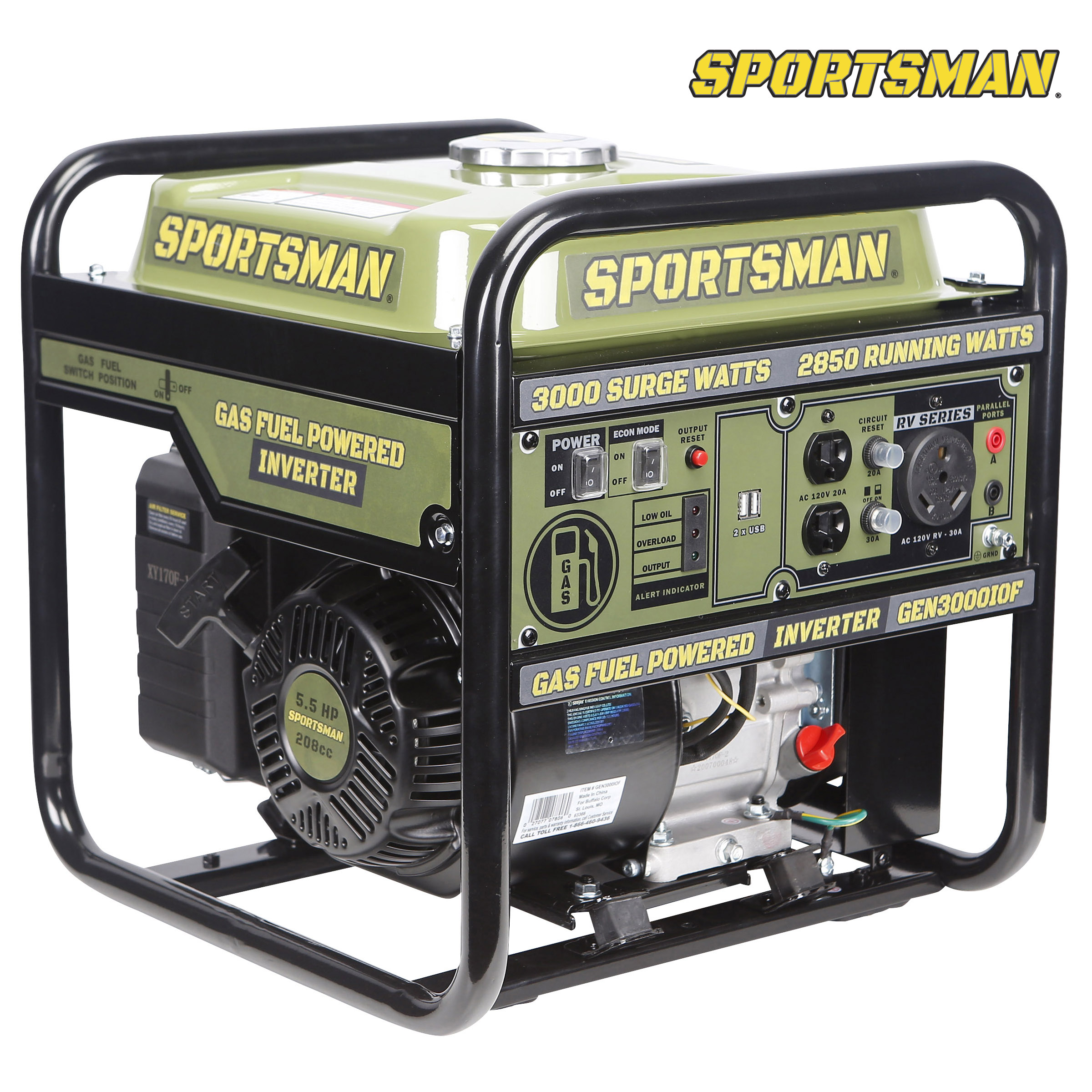
A 3000 watt generator can supply up to 3 surge watts of additional power to the appliances and devices connected to it. Surge watts are a measure of the extra power that can be supplied for a short period of time when there is an increased load on the generator. This extra power is useful for starting heavy duty equipment such as air conditioners, freezers, and refrigerators.
Below is a list of some of the appliances and devices that can benefit from the extra power of 3 surge watts:
- Air Conditioners
- Freezers
- Refrigerators
- Coffee Machines
- Vacuum Cleaners
- Power Tools
- Water Heaters
- Fans
- Lights
Generator Maintenance

A 3000 watt generator is a powerful machine and requires regular maintenance to ensure optimal performance. Proper generator maintenance includes checking the oil, spark plug, and air filter. In addition, the generator should be properly lubricated and the battery should be tested and replaced if necessary.
| Maintenance Task | Frequency |
|---|---|
| Check Oil | Weekly |
| Replace Spark Plug | Every 100 Hours |
| Change Air Filter | Every 200 Hours |
| Lubricate Generator | Weekly |
| Test Battery | Monthly |
It is important to follow the manufacturer’s instructions when performing maintenance on your 3000 watt generator. Regular maintenance will help ensure the generator runs efficiently and safely.
Generator Accessories
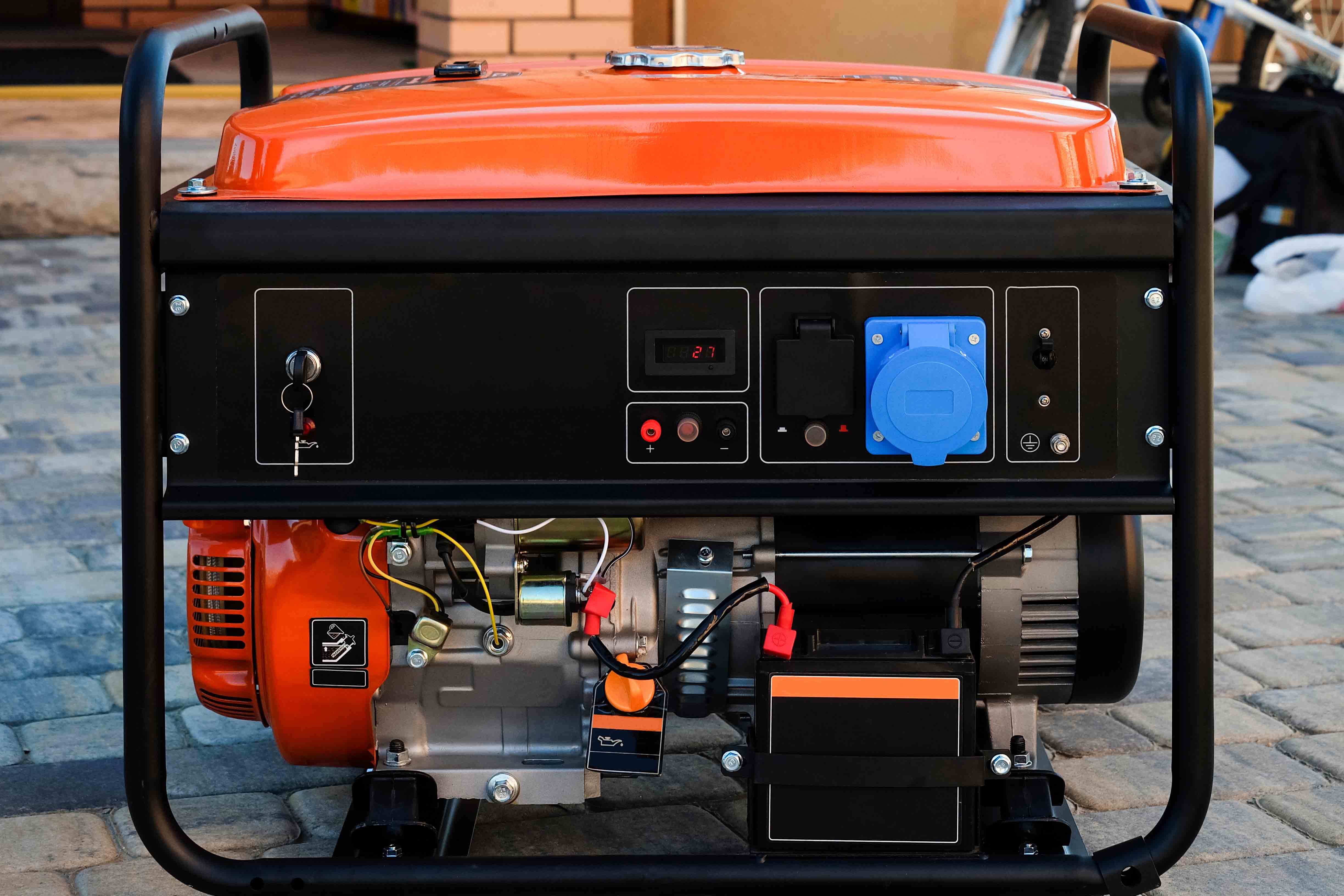
A 3000 watt generator is a powerful and reliable source of electricity in a variety of situations. It can provide power for a wide range of applications such as camping, tailgating, emergencies, and more. To ensure that your 3000 watt generator is running safely and efficiently, there are some important generator accessories that you should consider.
First, you should invest in a generator cover. This cover is designed to protect your generator from the elements, such as rain, snow, dirt, and UV rays. It also helps to protect the generator from damage, such as scratches and dents. Additionally, a cover can help to keep the generator clean, which will help it to run more efficiently.
Second, you should consider purchasing a generator transfer switch. This switch allows you to connect your generator to your home’s power system, allowing you to use the generator to power your home in the event of a power outage. This is a great way to ensure that you have a reliable source of electricity during an emergency.
Third, you should consider investing in a generator extension cord. This cord allows you to easily extend the reach of your generator, allowing you to power a variety of appliances or tools. It is important to make sure that the cord is rated to handle the wattage of your generator, so be sure to check the specifications before purchasing.
Finally, you should consider purchasing a generator battery. This battery will help to ensure that your generator will be able to start quickly and easily in the event of a power outage. Additionally, having a battery will allow you to store energy from your generator, allowing you to use it even when the generator is not running.
These are just a few of the generator accessories that you should consider when purchasing a 3000 watt generator. By investing in the right accessories, you can ensure that your generator is running safely and efficiently, and that you always have a reliable source of electricity.
Generator Safety
When operating a generator, safety should always be a priority. A 3000 watt generator can be dangerous if not used properly. Here are some safety tips to follow when operating a generator:
- Read the manual and familiarize yourself with the generator’s features before using it.
- Make sure the area where the generator is located is well ventilated.
- Inspect the generator before each use, checking for any signs of damage or wear.
- Never overload the generator.
- Do not run the generator in wet conditions.
- Do not touch the generator when it is in use.
- Do not refuel the generator while it is running.
- Do not use extension cords with the generator.
- Make sure the generator is properly grounded.
- Be sure to store the generator safely when it is not in use.
Taking the time to follow these safety tips can help to ensure that you use the generator safely and properly.
Generator Costs
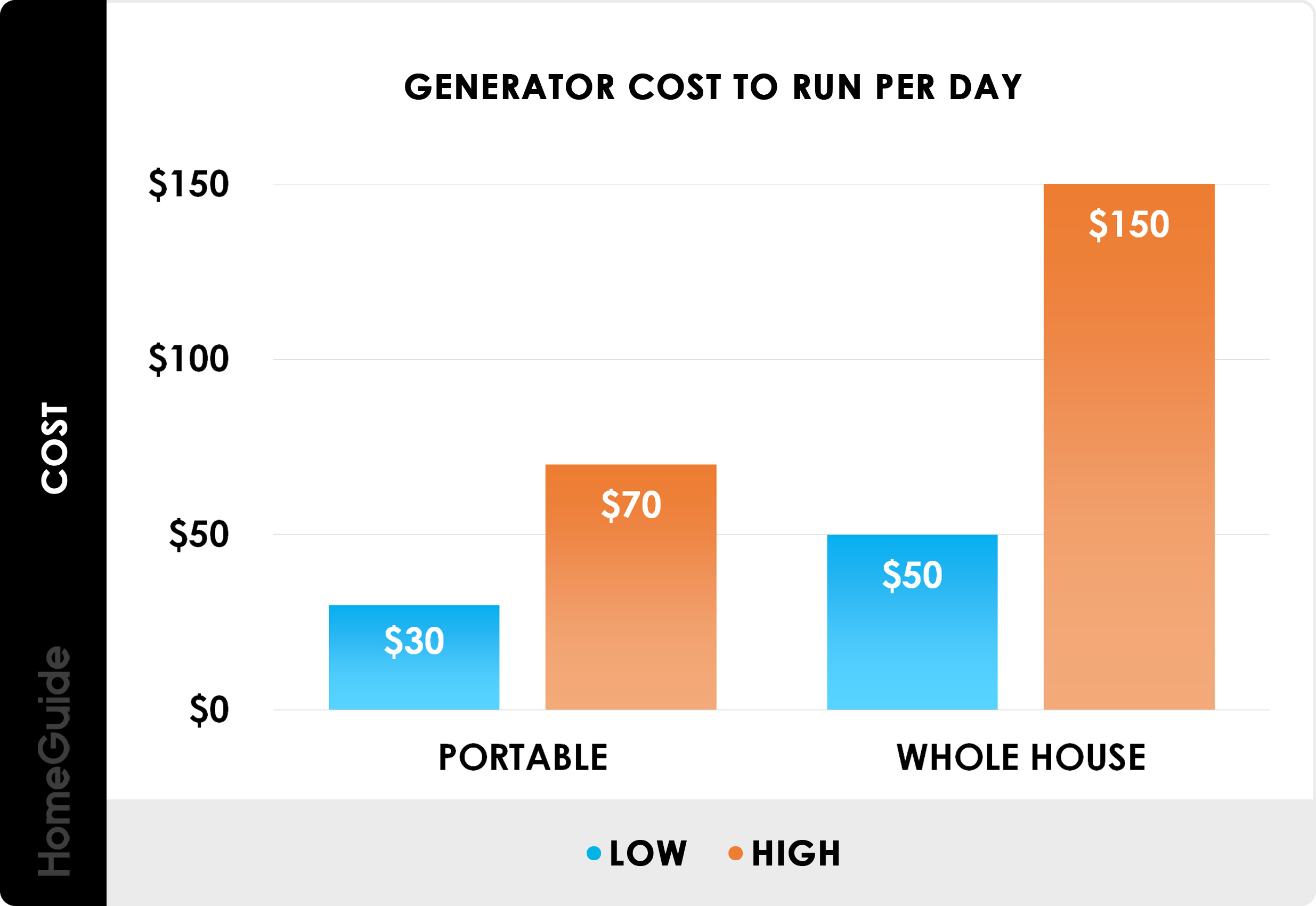
A 3000 watt generator can be purchased for a reasonable price. Depending on the make and model, the cost of a 3000 watt generator can range from $400 to $1000. It is important to shop around and compare prices to get the best deal. An additional cost to consider when purchasing a generator is the cost of fuel. Depending on the fuel type, the cost of fuel can vary significantly. A 3000 watt generator will consume about 1.5 gallons of fuel per hour, so it is important to consider the cost of fuel when calculating the total cost of ownership. Maintenance and repair costs should also be taken into consideration when calculating the total cost of ownership for a generator. A generator should be serviced and inspected regularly to ensure it is running properly and to avoid costly repairs in the future.
Generator Alternatives
When it comes to powering your home, a 3000 watt generator can provide enough power to run most appliances, such as a refrigerator, washing machine, or a few lights. However, there are other alternatives to consider when it comes to finding a reliable power source.
Solar Power
Solar power is an increasingly popular option for powering homes. A solar panel system not only provides clean energy, but it can also be relatively inexpensive to install. Solar panels can be used to power appliances and electronics, as well as providing hot water.
Wind Power
Wind power is another renewable energy source that can be used to generate electricity. Wind turbines can be installed to capture the energy of the wind and convert it into electricity. Depending on the size and type of turbine, it can be used to provide electricity for a home or business.
Fuel Cells
Fuel cells use a combination of hydrogen and oxygen to generate electricity. They are becoming increasingly popular as an alternative to traditional generators, as they are more efficient and have a lower environmental impact.
Battery Backup
Battery backup systems are becoming increasingly popular as an alternative to generators. They provide a reliable source of power in the event of a power outage and can be used to power essential appliances and electronics.
Comparison Table
| Power Source | Pros | Cons |
|---|---|---|
| 3000 Watt Generator | Reliable, easy to install, relatively inexpensive | Noisy, requires fuel, emits pollutants |
| Solar Power | Clean energy, relatively inexpensive to install | Requires sunny conditions, can be expensive to install |
| Wind Power | Clean energy, relatively inexpensive to install | Requires windy conditions, requires maintenance |
| Fuel Cells | Efficient, clean energy, low environmental impact | Expensive to install, requires maintenance |
| Battery Backup | Reliable, no fuel required | Requires regular maintenance and recharging, can be expensive to install |
Ultimately, the decision of whether to use a generator or an alternative power source will depend on the individual’s needs and preferences. The alternatives discussed above are all viable options when it comes to providing power for a home or business.
Frequently Asked Questions
1. How much power can a 3000 watt generator provide?
A 3000 watt generator is a powerful device capable of producing a lot of energy. It is a great option for powering a variety of devices, tools, and appliances. The amount of power that a 3000 watt generator can provide depends on several factors, including the type of generator, fuel type, and the load. Here is a breakdown of what you can expect from a 3000 watt generator:
- The maximum output power of a 3000 watt generator is 3000 watts, which is enough to run a variety of tools, appliances, and devices.
- The surge power of a 3000 watt generator is between 3100 and 4100 watts, depending on the type of generator and fuel type. This can be used to start larger appliances or power tools with higher power requirements.
- The rated power of a 3000 watt generator is usually between 2800 and 3200 watts, depending on the type of generator and fuel type. This is the power that is available to run your tools and appliances on a regular basis.
- The running power of a 3000 watt generator is between 2500 and 2800 watts, depending on the type of generator and fuel type. This is the power available to run your tools and appliances for long periods of time.
In conclusion, a 3000 watt generator is a powerful device that can provide a lot of power. It can power a variety of tools, appliances, and devices, making it a great option for many different purposes.
2. What are some of the common items that a 3000 watt generator can power?
A 3000 watt generator is powerful enough to run multiple items at once, depending on the wattage of the items. Common items that can be powered by a 3000 watt generator include:
- Refrigerator (500-800 watts)
- Television (100-400 watts)
- Laptop (50-100 watts)
- Lights (60-200 watts)
- Coffee Maker (900-1200 watts)
- Air Conditioner (1000-1200 watts)
It is important to note that the wattage of each item can vary depending on the size and model, so it is a good idea to check the wattage of the items you wish to power with your generator.
3. What safety measures should be taken when using a 3000 watt generator?
When using a 3000 watt generator, it is important to take the following safety measures:
- Always read and follow the manufacturer’s instructions and safety guidelines.
- Make sure the generator is in a well-ventilated area to prevent carbon monoxide poisoning.
- Never run the generator indoors or in an enclosed space.
- Never fill the fuel tank while the generator is running.
- Never add fuel to a running or hot generator.
- Always use approved extension cords with the generator.
- Make sure the generator is properly grounded to avoid electrocution.
- Never overload the generator by connecting too many appliances to it.
- Always turn off and unplug all appliances before shutting off the generator.
- Regularly inspect the generator for any damage or wear and tear.
- Shut off the generator and let it cool down before refueling.
4. What features should I look for in a 3000 watt generator?
When shopping for a 3000 watt generator, it is important to consider the features that the generator offers. Here are some features you should look for:
- Noise level – Make sure the generator has a low noise level, as this will help reduce the noise pollution in your area.
- Fuel efficiency – Look for a generator that is fuel efficient, as this will help save you money in the long run.
- Portability – If you plan to take your generator with you on trips or camping, make sure it is lightweight and easy to transport.
- Safety features – Many generators come with safety features such as overload protection, low oil shut off, and spark arrestors.
- Warranty – Most generators come with a warranty that will cover any defects or repairs that may be needed in the future.
By considering these features when shopping for a 3000 watt generator, you can ensure that you get the most out of your purchase and that it will be able to meet your needs.
5. Is a 3000 Watt Generator Sufficient to Power My Home or Business?
In order to determine if a 3000 watt generator is sufficient to power your home or business, you’ll need to consider several factors. Here is a list of the most important considerations:
- The Size of Your Home or Business: The size of your home or business will determine how much power you need to run all of your appliances, electronics, and lights. For example, a larger home or business may require more than 3000 watts to operate.
- The Number of Appliances and Electronics: The number of appliances and electronics you need to power will determine if a 3000 watt generator is enough for your home or business. For example, if you need to power multiple large items such as an air conditioner or a refrigerator, a higher wattage generator may be necessary.
- The Type of Generator: Not all generators are created equal. Some generators may be more powerful than others and may be able to provide more wattage than a 3000 watt generator. It is important to read the specifications of the generator to determine the exact wattage output.
Ultimately, the answer to this question will depend on your individual needs. If you are looking to power a small home or business, a 3000 watt generator may be sufficient. However, if you’re looking to power a larger home or business, you may need to look for a higher wattage generator.
Conclusion
In conclusion, a 3000 watt generator has enough power to run most large household appliances, such as refrigerators, air conditioners, microwaves, and washing machines. It can also be used to power a wide range of tools, such as blowers, grinders, and saws. However, it is important to remember that its power output is limited, so you should always consult the manual of your appliance or tool before using it. With proper care and maintenance, a 3000 watt generator can provide reliable power for many years to come.
References
- McGowan, B. (2020). 3000 Watt Generator – What Can It Power? A Comprehensive Guide & Review. Retrieved from https://www.powergenerators.org/3000-watt-generator/
- Home Depot (2020). Generac GP3000i – 3000 Watt Inverter Portable Generator. Retrieved from https://www.homedepot.com/p/Generac-GP3000i-3000-Watt-Inverter-Portable-Generator-6866/203767140
- Generac Power Systems (2020). Generac GP3000i Portable Inverter Generator. Retrieved from https://www.generac.com/portable-generators/inverter-generators/gp3000i
- Cummins (2020). Portable Power – 2500 Watt Inverter Generator. Retrieved from https://power.cummins.com/inverter-generators/2500-watt-inverter-generator
- Champion Power Equipment (2020). 3500-Watt RV Ready Portable Generator. Retrieved from https://www.championpowerequipment.com/us/en/generators/portable/100261
- Cabela’s (2020). Champion 3000-Watt Remote Start Inverter Generator. Retrieved from https://www.cabelas.com/product/CHAMPION-3000-WATT-REMOTE-START-INVERTER-GENERATOR/2372682.uts
